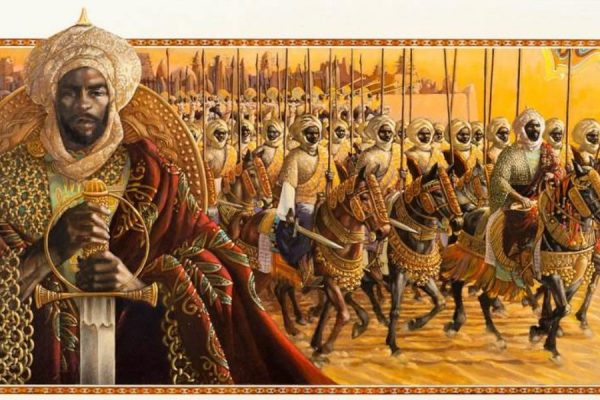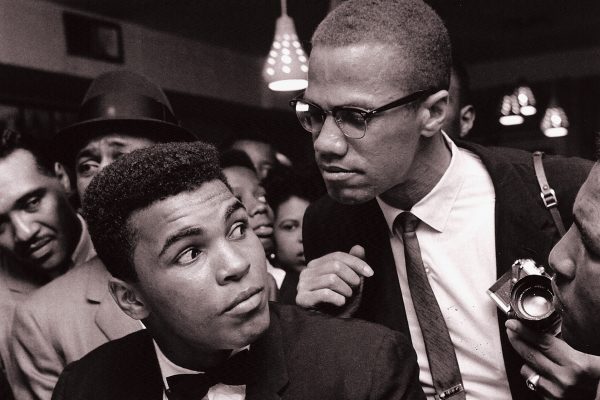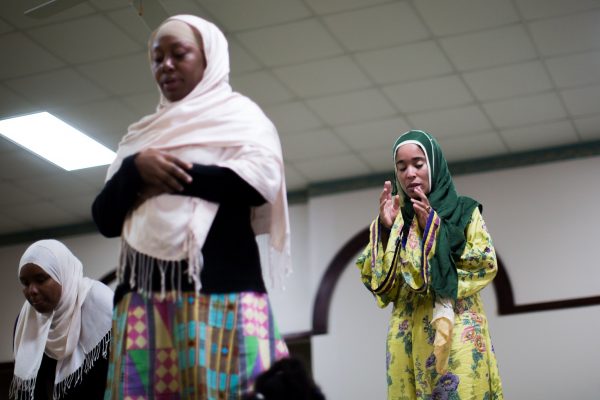“It saddens me when I hear a Black Muslim give lectures on ‘Islamic issues’ that are in fact South Asian and Arab Muslim issues. For example, a lecture on marriage in Islam where parental approval, cultural differences, and forced marriage are spoken about as if they are universal Islamic issues when they in fact have nothing to do with Islam and nothing to do with the Black community that imam came from, for example.”
“It saddens me when I hear a Black Muslim give lectures on ‘Islamic issues’ that are in fact South Asian and Arab Muslim issues. For example, a lecture on marriage in Islam where parental approval, cultural differences, and forced marriage are spoken about as if they are universal Islamic issues when they in fact have nothing to do with Islam and nothing to do with the Black community that imam came from, for example.”
Had I been born in Egypt during the time of the Pharaohs, it would have been a good time to be Black. Black people were the ruling class. The oppressed class, at least for a period of time, was the Hebrews.
But I was not born then; I was born in 1988 in America, and being Black here and now means being a part of the oppressed class. Hundreds of years of slavery, decades of legalized mistreatment, disempowerment, and overall injustice.
I live in a time where saying “Black Lives Matter” after of string of murders perpetrated by police is met with mockery and belittlement by mainstream America. I live in a time where a Black man can be accused of everything from sexual harassment to rape decades after the alleged incidents and it ruin his legacy while white men accused of molestation continue to make movies. I live in a time where Black relationships are falling apart and Black children are falling behind.
And yet, despite the residue of slavery, the average white American can feel more sympathy for a holocaust it did not cause than for the descendants of slaves on its own soil.
There are times in my life where I go months, even years, without thinking about race and racism. It’s too painful, too upsetting, and too unbearable. But what I have come to realize is that God uniquely made me Black and He bestowed upon me enough blessings to make a small dent to empower myself and my people. If Martin Luther King Jr. and Malcolm X did not eradicate racism, I certainly won’t either.
And I have come to realize that arguing with white people or non-Black Muslims about racism, trying to prove our humanity or the inhumanity of our suffering should be a minuscule, if not non-existent, part of that struggle. My struggle is to use what I have to “cast my bucket” where I am and give my people whatever I can to benefit our community.
It also means ignoring a lot of other things. I don’t plan to spend any significant portion of my life fighting “Islamophobia,” which is essentially the systematic oppression similar to what is inflicted on Blacks being inflicted on “Muslims” — Muslims being, in the eyes of a typical American, Arab, or South Asian. The internal racism in the Muslim community makes it so that South Asian and Arab issues become “Muslim issues,’ whereas Black issues are ignored.
There were people in the Prophet’s time who constantly came to him for knowledge then went back to their people to teach Islam, did he ask them to stay with him instead and become a teacher in the “Muslim community”? Or was it a natural expectation to go back and give what you’ve benefited back to your people?
It saddens me when I hear a Black Muslim give lectures on “Islamic issues” that are in fact South Asian and Arab Muslim issues. For example, a lecture on marriage in Islam where parental approval, cultural differences, and forced marriage are spoken about as if they are universal Islamic issues when they in fact have nothing to do with Islam and nothing to do with the Black community that imam came from, for example.
I recall hearing Imam Siraj Wahhaj of Masjid At-Taqwa in Brooklyn give a khutbah about marriage and speaking about what I call the “marriage suitability problem” that is a reality for his predominantly Black Muslim congregation, and it would have been delusional to discuss forced marriage in any significance. Some Muslim speakers talk about the issue of parents forcing their children to be doctors and engineers, again this is not a Muslim problem but one for some Muslim immigrants. If the Black Muslim voice was considered as legitimate, then the conversation would focus on the double-digit unemployment rate, poor nutrition, and institutionalized racism.
I am not sure if Black people have a huge ability for compassion and empathy or a major self-esteem issue but we cannot continue to put other Muslim communities’ issues before our own communities; in essence, allowing our house to burn while we put out their fires. Police brutality has been an issue in the Black community, which includes Black Muslims, for a very long time yet the “Muslim Community” gave no voice to this issue.
So should we be expected to lend our voice when our struggle becomes their struggle as well? No, fighting for non-Black Muslim rights under the general guise of “Muslim rights” is no more important than fighting for Black human rights which include Muslims. Why should we give up on our struggle for theirs? We cannot afford to lose a single soul in the Black community in the fight against oppression and for empowerment.
This article was originally published on Sapelo Square by writer Nuriddeen Knight, found here.





